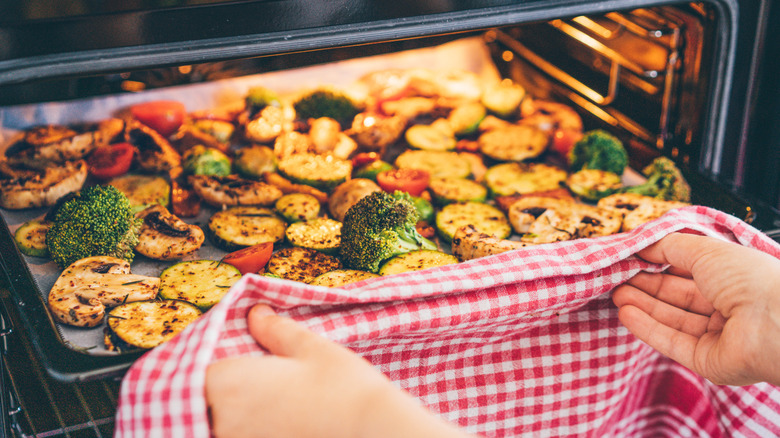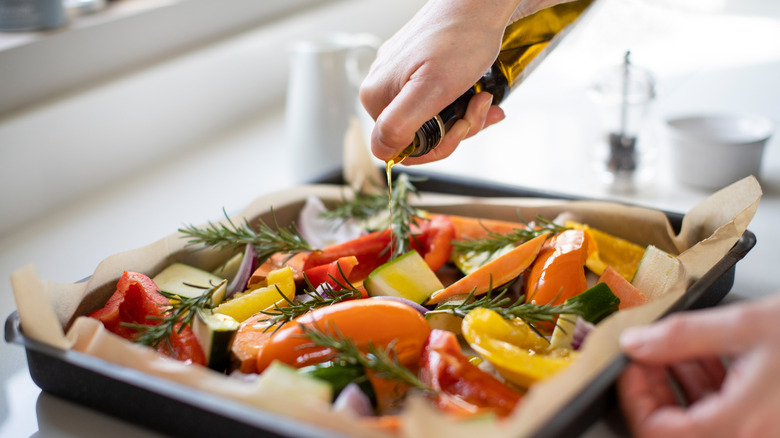If You Don't Like Roasted Vegetables, You're Probably Making This Huge Mistake
If the words "roasted vegetables" are synonymous with "no dessert until you eat every last thing on your plate," you're not alone. Even as an adult, they can feel like an obligation. You want to give them a chance — you've even liked them at restaurants — but every time you try to make a sheet pan salad at home, the vegetables turn to mush. What are you missing?
Executive chef at Asheville, North Carolina's Golden Hour, Kevin Chrisman, tells The Takeout that most home cooks make one crucial mistake. Considering that the Golden Hour menu features plenty of roasted vegetables which the restaurant sources from local farmers, Chrisman doesn't play favorites. "All veggies are great for roasting," he says. But he warns against one common mistake: using too much oil. "You need a lot less oil than you're probably thinking. Keep in mind that too much oil will result in shallow frying in the pan instead of searing."
How much oil do roasted vegetables need?
What's wrong with too much oil? Fried food is great! I've even intentionally added extra oil to roast vegetables, hoping for a crispier texture, but the vegetables still came out greasy and soft. It turns out, I was doing it all wrong. Oil keeps vegetables tender by locking moisture in, but you still want some steam to escape, otherwise the oil suffocates the veggies and turns them to mush. "For roots like turnips or carrots, toss in your mixing bowl and slowly drizzle until all of the veg has a little coating," says Kevin Chrisman. "And that's all you need."
Skip the extra virgin olive oil: It covers up the subtle flavors of the veggies. Chrisman recommends a neutral cooking oil like canola. Extra virgin olive oil can also leave the vegetables tasting burnt, too. Many recipes call for oven temperatures over 400 degrees Fahrenheit, well above the smoke point of the popular pantry staple.
Experiment and adjust your time and temperature. "In order to get a good overall idea of how to cook [your veggies], taste them raw first and think about what flavor you might like to get out of them," Chrisman says. Longer roasting times make the veggies taste sweet, and denser carrots and potatoes will need lower temperatures than watery tomatoes. Want an extra crispy crust? A preheated sheet pan amps up the flavor of roasted veggies. Of course, if at first you don't succeed, try, try again.

